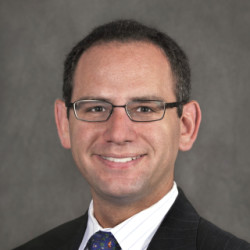DDW 2023 was a fascinating time for those interested in C. difficile infection. After a decade of diligent work toward FDA approved forms of microbiota restoration therapy, since the prior DDW, not one, but two separate treatments have gained approval. With Rebyota (Fecal microbiota, live jslm) and Vowst (Fecal microbiota spores, live brpk) being available, the focus of the abstract presentations shifted from pivotal trials to refining our understanding of how they might be applied in clinical practice and the science behind why they work.
Rebyota is a broad consortium of microorganisms administered as a single rectal instillation following standard of care antimicrobials. It is indicated in adults 18 and over for the prevention of recurrence of C. difficile infection. Three key abstracts were presented regarding this product. The first, presentation #697, revealed microbiota data further clarifying that this treatment restores diversity of the microbiota. This reinforces the science behind the clinical trials showing clinical improvement and lower rates of recurrence in those who received this therapeutic. One of the goals of having an FDA approved form of microbiota restoration is broader availability and this data should further reinforce that the science behind this therapy is consistent with clinical outcomes for those providers who might be less experienced with microbiota restoration. Two other abstracts considered usage in patients with either inflammatory bowel disease (presentation #699) or those having a chronic immune compromised state (presentation #700). Both showed consistent safety and efficacy in these specialized populations. As clinicians, this is important to see because there might be hesitancy to use a new product in more susceptible patients.
Vowst is a narrower consortium of microorganisms, consisting of isolated Firmicutes spores, sourced from donor stool following an ethanol-based purification process. This is administered as 4 capsules daily for 3 days following standard of care antimicrobial and a small bowel purge. It is indicated in adults 18 and over for the prevention of recurrence of C. difficile infection as well. There were 2 relevant abstracts with data considering Vowst. The first, presentation #694, was a report from the phase 3 open label study confirming that those that responded initially to the treatment, largely remained responsive over 6 months of follow up with a consistent safety profile. This reinforced the durability of response to this therapeutic. The other, presentation #Su1873, was a sub-group analysis of the open label study considering efficacy and safety based upon age, gender, number of episodes prior to enrollment, antimicrobial regimen and diagnostics. The data showed that there was very consistent safety and efficacy across the sub-groups, further validating that this treatment can be used broadly. Those providers who have less experience with microbiota restoration should be comfortable using this product without worrying about specific groups benefitting more than others.
VE303 is another product that is on the horizon as a potential tool for microbiota restoration to reduce future recurrence of CDI. The data from a phase 2 trial, dose ranging study was originally presented at DDW in 2022 and was published recently in JAMA. This product takes an even narrower approach, using 8 bacterial strains originally isolated from the human intestine and synthetically grown within the lab and administered in an encapsulated form. This product had encouraging microbiota data presented from its phase 2 trial showing that the basic science theories of metabolomics changes that are needed to help prevent recurrence, fit with the clinical outcomes observed in the phase 2 trial (presentation #695). This provided further validation for this product to proceed to phase 3 trial.
It is an incredibly exciting time in the world of C. difficile and microbiota therapeutics with live biotherapeutic products. Rebyota and Vowst will hopefully be trailblazers paving the way for patients with recurrent C. difficile to have better access to microbiota restoration therapies to shut down the cycle of recurrence. As these treatments are first in class, this initial data is very encouraging in general, but also is setting the standard for future approaches to microbiota restoration therapies in other disease states.
Dr. Feuerstadt has received consulting fees or honorarium from SERES Therapeutics, Ferring Pharmaceuticals, Takeda Pharmaceuticals, and Regeneron Pharmaceuticals. He has also received payment for lectures from SERES Therapeutics, Ferring Pharmaceuticals, and Takeda Pharmaceuticals.
Image by Olga Zakharova / GettyImages







